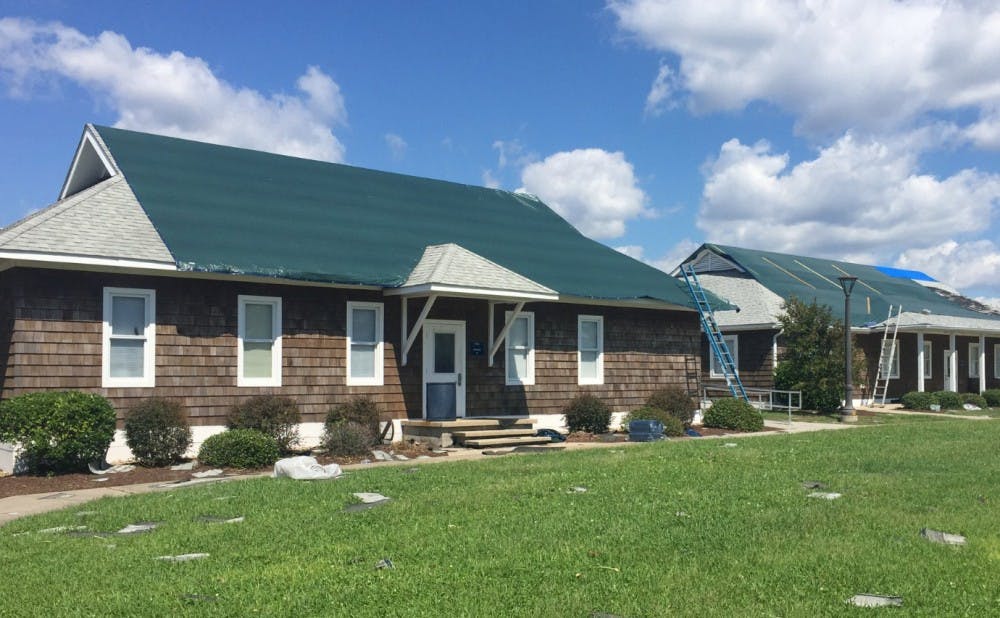Although the worst of Hurricane Florence missed Durham, Duke students at the Marine Lab weren't as lucky.
A “quasi-normal teaching schedule” at the Marine Lab, which suffered damage to several buildings, is expected to resume Oct. 1, according to an update from director Andy Read. Power has been restored to the campus on Pivers Island in Beaufort, North Carolina, and assessments are currently underway to gauge water damage.
Undergraduate students, who were evacuated Sept. 11, are supposed to return later this week. Students were mostly put into empty apartments on Central Campus that are reserved for the Marine Lab in case of emergencies such as Florence, according to senior Annie Harshbarger.
“We have received incredible support from main campus, from offers of accommodation to displaced students to technical assistance from [Facilities Management] on damage assessment and recovery," Read wrote in an email to the Chronicle.
The library, auditorium, student center and several other buildings only sustained minor water damage and will be open starting Sept. 24. Lab personnel will begin work back on campus beginning the same day, along with construction workers already there to dry out buildings and remove debris.
Other buildings—such as the Marguerite Kent Repass Ocean Conservation Center and the Bookhout Research Laboratory—will be opened individually as soon as the damage has been assessed and repaired.
“First and foremost, everyone is safe, but several members of our community have suffered significant damage to their homes and we are in the process of conducting a full accounting of everyone’s immediate needs,” wrote Read on the Nicholas School of the Environment's website.
Seniors Trevyn Toone and Harshbarger are two of the Marine Lab undergraduate students forced to evacuate back to Duke’s main campus. They are currently living in an apartment on Central Campus provided by the Marine Lab.
Both were optimistic about how the Marine Lab faculty has handled the hurricane, but neither was completely sure what the future held.
"We're all just taking it one day at a time," Harshbarger said.
At breakfast the morning of Monday, Sept. 10, faculty informed students they would have to leave campus indefinitely—by the next day, all undergraduates had evacuated. Students weren’t surprised—they had been expecting to leave for several days at that point.
Once they got to Duke, Toone and Harshbarger said they were focused on feverishly tracking the storm in their apartment. Now that the storm is over, they spend their days catching up with friends, trying new restaurants on campus and waiting for daily updates.
What’s the most important update they’ve received?
“We've gotten some pictures of the cats who live on the island,” Harshbarger said.
"That was everyone's first concern—what are these cats doing?" Toone added.
Their professors have also been sending them work to do, and classes—both remote and in-person in Durham—should resume this week.
Although their campus was not impacted too heavily, both students discussed destruction in the surrounding community. Read wrote in his update that power has been restored to most of Moorehead City and Beaufort, but not yet to rural areas in Carteret County. Stores and gas stations are still reopening in the area.
Students at the Marine Lab, especially graduate students who live in Beaufort, are also helping with the relief effort, Toone said, noting they have been collecting funds from undergraduates and donating supplies to a local church.
Get The Chronicle straight to your inbox
Sign up for our weekly newsletter. Cancel at any time.

Jake Satisky was the Editor-in-Chief for Volume 115 of The Chronicle.

